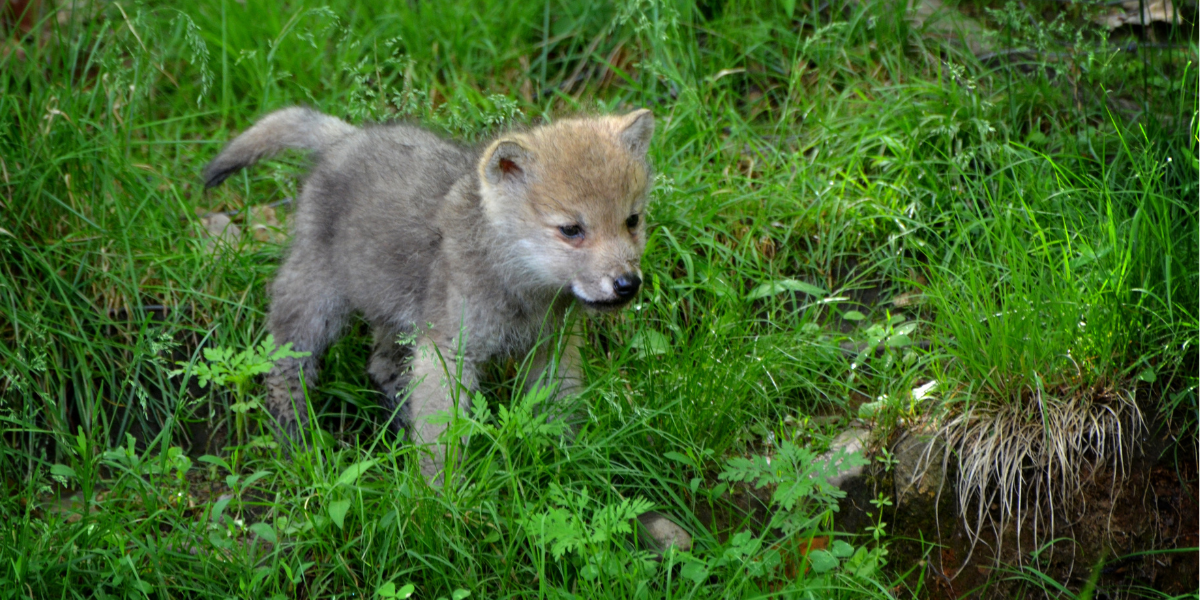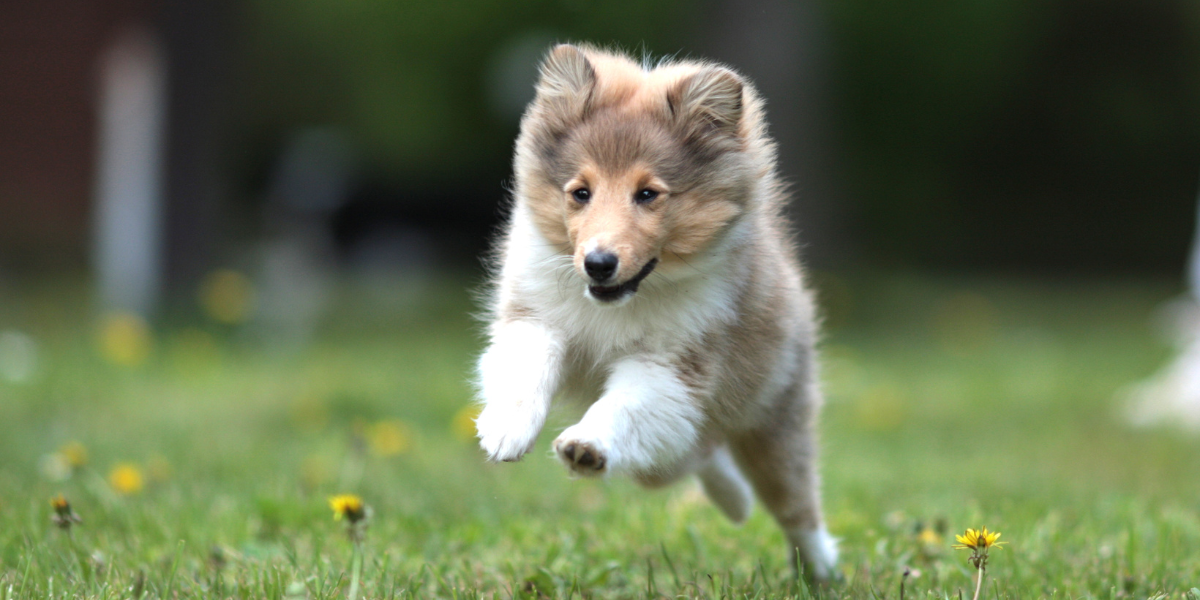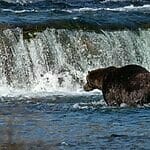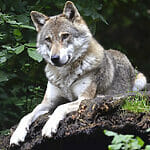Wolf As a Pet – Can you have a Wolf as a Pet?
Are you considering a wolf as your next pet?

It might seem interesting from far away but when it comes practically you will find out many potential reasons why you should avoid wolves as a pet. And how many risks you’ll experience if you have a wolf as your new pet.
No doubts, wolves are closely related to the dog family, but it doesn’t mean they carry similar characteristics or companionship levels as dogs have.
As wolves inherited predatory instincts, which are impossible to vanish, even after keeping it as a pet. Moreover, if you have already decided not to change your mind, then you have to give him special training, a dedicated area, and even an official permit (Depending on your location) for keeping a wolf.
Additionally, wolves are highly social animals, so it could be problematic for you to handle them in a household environment. But don’t worry! In this blog, we will cover everything regarding wolves as pets.
Do Wolf Dogs Make Good Pets?
A Wolf dog is the result of cross-breeding between a domestic dog and a wolf and is known as a wolf hybrid.
They look interesting, and quite attractive, but just don’t follow their appearance, as raising them brings a huge responsibility for the wolf-dog owners.
Wolf dogs are highly intelligent, loyal, and affectionate animals, but their predatory instincts make them unpredictable and their training challenging.
Moreover, before finalizing any decision to have a wolf-dog as a pet, make sure that authorities allow you to keep it. And you can manage it with your daily routine.
Some experienced wolf dog owners shared that they have a wolf-dog which is a mix of dog breeds that end up showing the wild characteristics of a wolf.
Can Wolf Pups Be Domesticated Animals?
A Wolf pup looks cuddly and cute, which can evoke anyone’s interest to make them their pet. But they are wild animals, and no one can change their instincts and stop their aggressive behaviour completely, as they carry these features genetically.
Additionally, domestication comes after generations of selective breeding, but yet impossible when it comes to wolves.
Having a wolf in your home could be dangerous for both of you. Plus an adult wolf can give you a tough time, as they will tear your furniture, carpet, and clothes, and the reason is they tend to be destructive.

Even though you can not leave them in your home alone, as they are experts in escaping. So if you are someone who can give your maximum time, then it would be a good choice as a pet, but the danger remains.
However, if you spend most of your time away from home, you should research other safe pet animal options.
Do wolf hybrids Make Good Pets?
The number of wolf dogs abandoned at shelters is growing. Unfortunately, most dog shelters cannot provide these animals with the specialized care they need.
Though some people think it’s exciting to raise a hybrid wolf, the reality can be much more horrible than expected.
The wolf dog is a hybrid of a wolf and a dog, yet this hybrid breed has wild instincts and is large in size.
Additionally, for keeping the wolf dogs, you have to keep the wolf-dog inside a properly fenced area of at least 8 to 10 feet high, as the same safety measures go for the wolves.
And if you travel out of the city and plan to drop your wolf hybrid at the boarding kennel, then forget it. As the kennel staff is unable to manage animals that are highly energized, dominant, and aggressive.
Moreover, people get a wolf dog out of excitement, but when they have to take care, raising them mostly fails.
This results in an increased quantity of abandoned wolf dogs at shelters, and the reality is that the abandoned wolf-dog doesn’t get the care they need at the shelter houses.
Sexual Maturity Brings the Problems
When wolf dog puppies reach sexual maturity, they cause too many problems for their owners. As their innocent pup behaviour ended up once they reached adulthood.
In adulthood, aggression and territorial behaviour become more prominent, even in pet wolves.
They start showing their territory-marking behaviour, which is more intense than dogs. Not even this, their destructive tendency increases, and they tear, chew, and scratch household items.
Wolves Behavior Towards Children
Wolves love to play with kids, but unfortunately, they usually hurt them. As they do not know how sensitive children are and how to treat human children. That’s why they treat the children exactly how they treat their puppies.
Which means they hold the children in their mouths and carry them anywhere. However, this behavior is not harmful to wolf puppies but can be risky and dangerous for human kids.
The Legality of Keeping a Wolf as a Pet
In the U.S., keeping a pure wolf breed is strictly prohibited and considered a crime. If anyone you know claims that they have a wolf as their pet, it means it’s a wolf dog.
According to the law, the wolf should have 2% of dog DNA to be a wolf-hybrid. And it is not necessary to have more dog genes.
But don’t forget that each state has its own laws regarding the ownership of hybrid animals. Some states have enforced bans on such animals, and in some states, keeping a wolf-dog is legal if you comply with their legal criteria.
Wolf Puppy Bonding with Humans
According to the royal society of open science, when humans raise a wolf pup, they get emotionally attached to them.
And this bond becomes stronger with time, which means if the first owners ever try to rehome their pet wolf, they go through too many difficulties and find it hard to adjust with their new owner.
Why Wolves Are Dangerous Pets
Wolves are wild animals with wild instincts and are dangerous, which is why many states and countries have enforced a ban on wolves.
It is impossible to remove their predatory instincts even after multiple cross-breedings. No matter how much domesticated wild wolves are, the chances of attacks on other humans remains.
Wolves are aggressive wild animals as compared to dogs, and their territorial behaviour increases the chance of attacks more in adulthood.
Some experienced wolf-dog owners shared that their pet wolves turn out aggressive in unexpected time, despite a long time of domestication.
Conclusion
Having a wolf as a pet seems interesting if it remains limited to thoughts. But when this thought comes into reality, it is risky for humans and animals residing in urban areas.
Wolves are wild animals with wild instincts and aggressive behaviour. Plus, the large size of a wolf made it challenging for an average person to control a wolf.
Even with an ample amount of professional training, and socializing, it doesn’t make wolves a safe and suitable animal for households.
Further, many legal authorities don’t allow wolves as pets due to safety measures. You can check the video below for more details on whether you can have a wolf as a pet or not.
Frequently Asked Questions
Which Dogs Look Like Wolves?
Siberian huskies look like wolves and are domesticated dogs.
Do Hybrid Wolves Make Good Pets?
It can be dangerous for families with children and cats to have hybrid wolves as pets due to their high energy level and huge size.
Can Wolf Pups Be Domesticated?
Wolf puppies can be domesticated, but their wild behavior and instincts cannot be suppressed.
In what states is it legal to own a wolf?
Some states where Wolf dog is legal are Alabama, Arizona, Colorado, Idaho, Iowa, Kansas, Kentucky, North Carolina, North Dakota, Ohio, etc.
Do wolves make good pets?
Wolves don’t make good pets for many reasons like they need proper supervision and aggressive behavior.
Are wolves loyal to humans?
If a human look after a wolf from puppyhood, they get attached to them and stay loyal.
Can a wolf be tamed as a pet?
Wolves are not good pets.
Can you raise a wolf as a dog?
No, you can’t turn a wolf into a dog.
- What Should I Do If A Koala Bites Me? Safety Guide - 2024-05-30
- Are Kangaroos Born Without Hind Legs? A Fascinating Journey - 2024-05-30
- Animals That Look Like Squirrels - 2024-05-30









